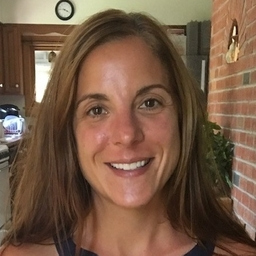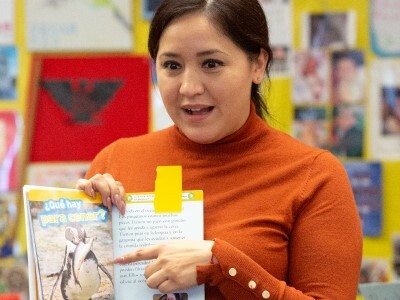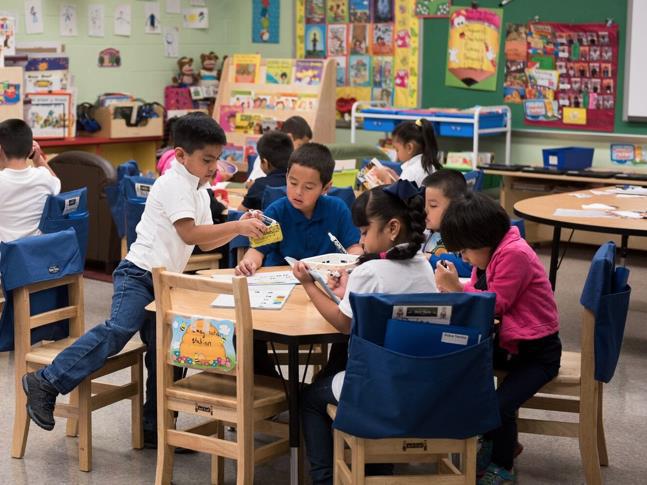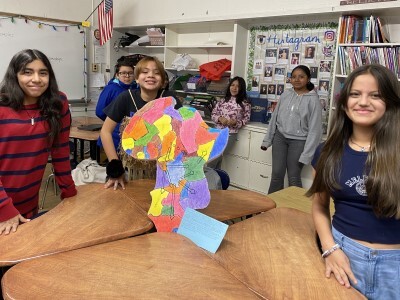Reimagining Professional Learning for Educators
Topics
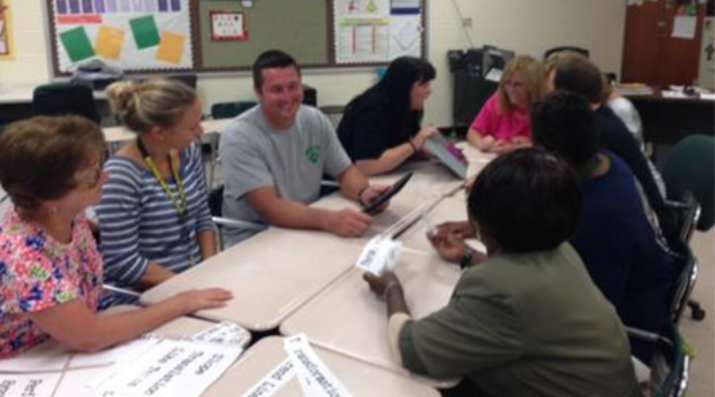
Educators are the lead learners in schools. If they are to enable powerful, authentic, deep learning among their students, they need to live that kind of learning and professional culture themselves. When everyone is part of that experiential through-line, that’s when next generation learning thrives.
Teachers in breakthrough models schools are experiencing a new approach to professional development.
Educators across the nation are gearing up for the start of a new academic year, and with that comes teacher in-service. For many educators, these in-service days look the same as they did 50 years ago: a ‘stand and deliver’ model where an expert imparts knowledge to a passive audience.
But for those working within breakthrough models, professional learning looks very different. For educators at Matchbook, Intrinsic, Alpha Public Schools, or Horry County Schools, for example, learning may be personalized, self-directed, ongoing, collaborative and embedded.
Matchbook Learning
Personalized and self-directed learning
School profile: Matchbook Learning, a partner organization, launched its first district turnaround school in Detroit, Michigan, in 2011; the school serves students in grades K-8.
Sajan George, Founder and CEO of Matchbook Learning, believes that personalized learning in their blended, personalized turnaround school model applies to both students and teachers.
“If we are going to bring the power of personalized learning to students, teachers in the model need to meet students where they are while also ensuring that our students progress in their learning with some choice on path, pace, and progress. Teachers need to have opportunities to live this as well.”
At Matchbook, this means that teachers receive 40 professional observations and 20 one-on-one coaching sessions with blended learning experts each year. From these observations, teachers set individualized quarterly goals and coaches help to identify resources in order to provide ongoing support and to ensure teachers achieve their goals.
Alpha Public Schools
Ongoing training
School profile: Alpha Public Schools’ Blanca Alvarado Middle School, a blended learning charter school in San Jose, California. The school, which opened in fall 2013, serves students in grades 6-8.
At Alpha Public Schools, teachers possess a growth mindset—and like teachers at Matchbook, they engage in a frequent observation and feedback cycle that is applied across campuses and classrooms. There has been a focus at Alpha on establishing some foundational skills, including: data driven instruction, and the use of observation and feedback.
Alpha’s leadership has been intentional in moving beyond ‘one-shot wonders,’ as professional learning needs to occur over a series of days with follow-up sessions so that teachers and administrators can deepen their learning. It also gives them an opportunity to further refine their understanding after applying what they’ve learned to a teaching context. (Gone are the days of the one and done.)
Horry County Schools
Collaborative approach
School profile: Horry County Schools’ Whittemore Park Middle School, a district turnaround school in Conway, South Carolina, opened in fall of 2013. The school serves students in grades 6-8.
Beth Havens, who works with innovation projects, embraces the notion of professionalizing teachers. She believes the best way to move a learning culture forward and support teacher learning is for “decisions to be made by leadership teams of professional staff. As individual and small groups of teachers develop expertise, having these teachers mentor their colleagues is key.” The big idea is to focus on lessons learned from implementing and trying new approaches.
She described the philosophy of fail quickly and well: “With innovation and anything new, we’re going to experience approaches that don’t work, and the lessons learned from these failures are as important as our successes.” If administrators embrace and learn from failure, Havens emphasizes that they can communicate to teachers that they support and encourage risk-taking, deepening trust on all levels.
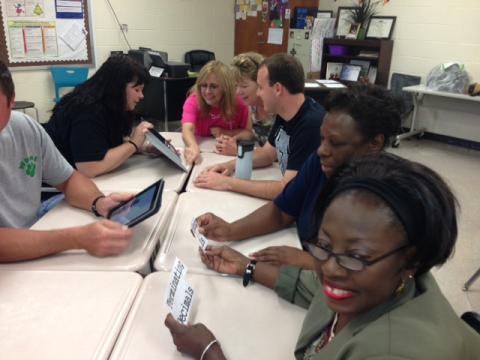
Intrinsic Schools
Embedded professional learning
School profile: Intrinsic Schools, a tech-enabled adaptive learning model for students in grades 7-12, opened in fall 2013 in Chicago, Illinois.
Intrinsic is committed to providing its teachers with ongoing, collaborative professional learning. Next year this will be accomplished largely through observation and feedback. Principal Melissa Zaikos will build her schedule to ensure that every teacher receives a 15-minute observation every other week. These observations will be followed by a one-hour post conference. Common themes will be identified and tackled by the whole faculty. Zaikos believes this new structure will “enable the creation of a culture of transparency, learning from taking risks, and adjusting instruction to meet the learning needs of students.”
The school schedule at Intrinsic Schools also supports embedded professional learning. Early release days once per week provide three hours of professional development that will follow a rotational model: one session focused on school culture, one on collaborative planning, and one reserved for a full staff meeting to tackle ongoing professional development needs emerging from teacher observations. During these professional development sessions, faculty may view videos of their colleagues’ instruction and debrief with other staff members.
Across these school models, professional learning is self-directed and collaborative. Professional learning flourishes in environments where reflection, dialogue and goal-setting are expected, modeled, and nurtured by the leaders and systems in place. As John Glover from Alpha stated,
“Our teachers have understood and agreed that culture is going to drive student achievement.”
It’s clear that this statement holds true for adult professional learning, and the leaders of these breakthrough school models have put structures, practices and systems in place to support a culture of transparency, trust, risk-taking, and growth.
What types of professional development opportunities exist at your school? Tell us on Twitter—and don’t forget to tag @NextGenLC.

